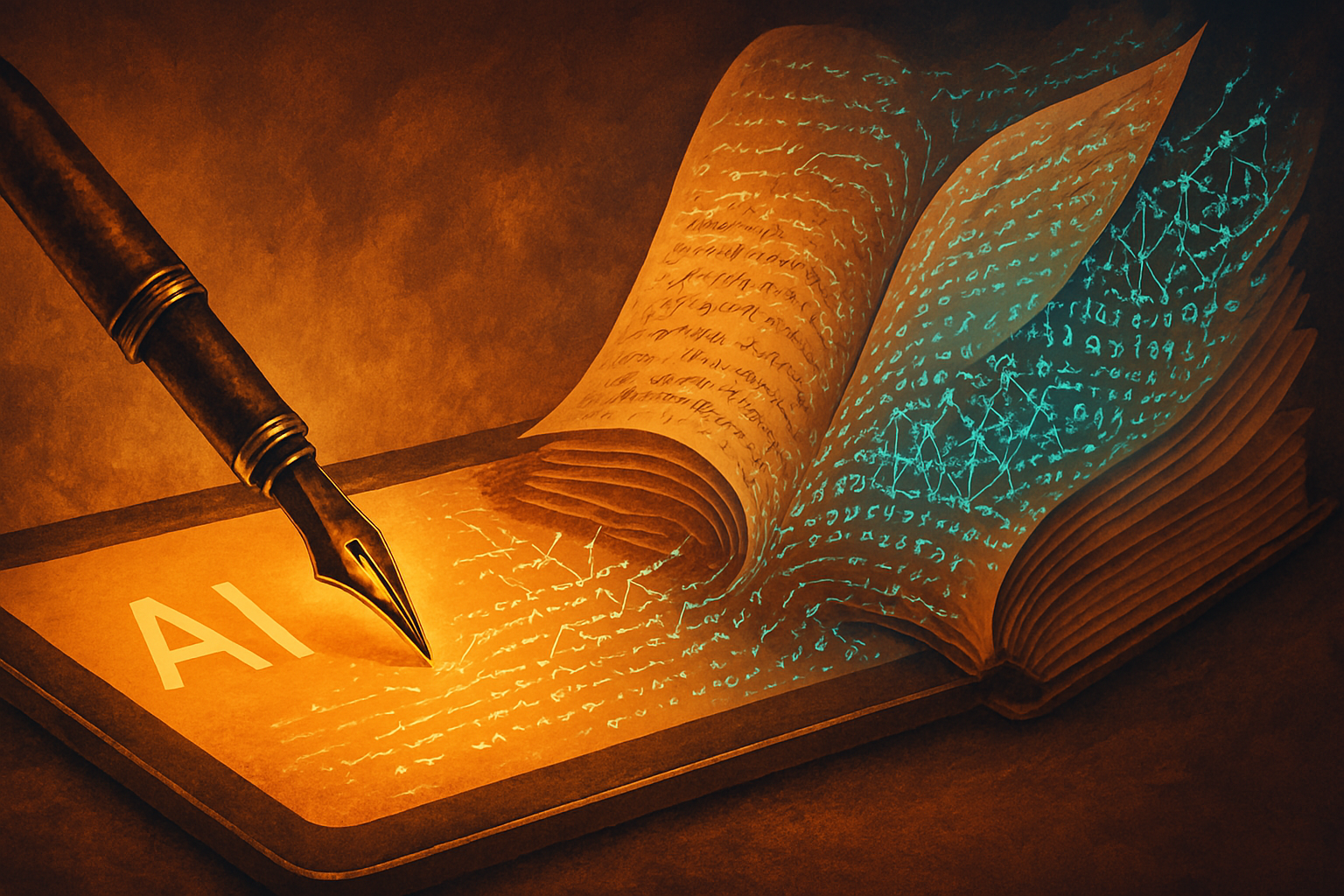Article 6: The Rise of AI in Creative Writing: Friend or Foe?
Meta Title: AI in Creative Writing: Exploring its Impact and Future | Future AI
Meta Description: Can AI truly be creative? We delve into the rise of AI in creative writing, exploring its capabilities, limitations, and the potential impact on authors and the literary world.
Target Keywords: AI creative writing, AI in literature, AI writing tools, future of writing, AI and authors
AI in the Author’s Toolkit: Exploring the Rise of Creative Writing Assistants
The realm of creative writing, once considered a uniquely human endeavor, is increasingly seeing the influence of Artificial Intelligence. From generating plot ideas to drafting entire scenes, AI tools are emerging that promise to assist, augment, or even automate aspects of the creative writing process. This raises fascinating questions: Can AI truly be creative? What are the benefits and drawbacks of using AI in writing? And what does the future hold for authors and the literary landscape in an AI-augmented world?

How AI is Being Used in Creative Writing Today
AI tools are already making their mark in various stages of the writing process:
- Idea Generation & Brainstorming: AI can analyze vast datasets of existing literature, identify patterns, and suggest novel plot twists, character archetypes, or thematic explorations. Writers can use AI as a springboard for new ideas or to overcome writer’s block.
- Plot Development & Outlining: Some AI tools can help structure a narrative, suggest character arcs, and ensure logical consistency in a plot. They can act as a virtual outlining partner.
- Drafting & Content Generation: This is perhaps the most discussed application. AI can generate descriptive prose, dialogue, and even poetry based on prompts. While still requiring human refinement, it can significantly speed up the initial drafting process.
- Style & Tone Emulation: AI can be trained to mimic specific writing styles or tones, which can be useful for authors working across different genres or needing to maintain a consistent voice.
- Editing & Proofreading: Beyond basic grammar and spell checkers, AI-powered editing tools can offer suggestions for improving sentence structure, clarity, word choice, and overall flow. They can also help identify clichés or repetitive phrasing.
- Worldbuilding (for fiction/fantasy): AI can assist in generating detailed descriptions of fictional worlds, cultures, and histories, providing a rich backdrop for storytelling.
The Debate: Can AI Truly Be Creative?
This is a central question. Skeptics argue that true creativity requires consciousness, emotion, and lived experience – qualities AI currently lacks. They contend that AI merely recombines existing patterns from its training data in sophisticated ways, rather than producing genuinely original thought.
Proponents, however, might argue that creativity often involves drawing inspiration from existing works and reinterpreting them. If an AI can generate a novel, emotionally resonant story that readers connect with, does the origin of that creativity matter as much?
Perhaps the most balanced view is that AI, in its current form, is a powerful tool for creativity, much like a word processor or a research assistant. It can augment human creativity but not entirely replace it. The human element of intention, emotional depth, and nuanced understanding remains crucial.
Benefits of Using AI in Creative Writing
- Overcoming Writer’s Block: AI can provide prompts, ideas, or even draft sentences to get the creative juices flowing.
- Increased Productivity: Automating certain aspects of writing can free up authors to focus on higher-level creative tasks.
- Exploration of New Styles: AI can help writers experiment with different genres or writing styles they might not have otherwise considered.
- Accessibility: AI tools can assist individuals who may have physical or cognitive limitations that make traditional writing challenging.
- Idea Expansion: AI can take a simple idea and quickly generate multiple variations or potential plotlines to explore.
Potential Drawbacks and Ethical Concerns
- Loss of Originality & Homogenization: Over-reliance on AI could lead to a decrease in truly unique voices and a more formulaic literary landscape.
- Copyright and Authorship: Who owns the copyright to a work co-created with an AI? This is a complex legal and ethical area.
- Bias in AI: As mentioned earlier, AI models can inherit biases from their training data, potentially leading to stereotypical or unfair representations in creative works.
- Devaluation of Human Creativity: There are concerns that the proliferation of AI-generated content could devalue the work of human authors.
- Authenticity and Emotional Depth: Can AI truly capture the nuances of human emotion and experience in a way that resonates authentically with readers?
The Future of AI and Creative Writing
It’s likely that AI will become an increasingly integrated part of the creative writing process, much like digital tools have revolutionized other art forms. The future may see a symbiotic relationship where writers use AI as a sophisticated assistant to brainstorm, draft, and refine their work, while still imbuing it with their unique human perspective and emotional intelligence.
Rather than a replacement for human authors, AI could become a powerful collaborator, opening up new avenues for storytelling and literary expression. The key will be to harness its capabilities responsibly and ethically, ensuring that human creativity remains at the heart of the art form.
What are your thoughts on AI in creative writing? Share your opinions in the comments below!
Leave a Reply